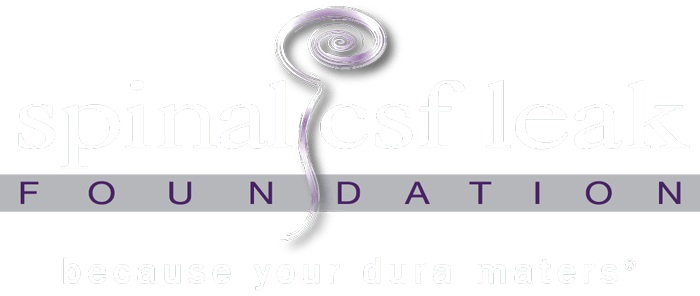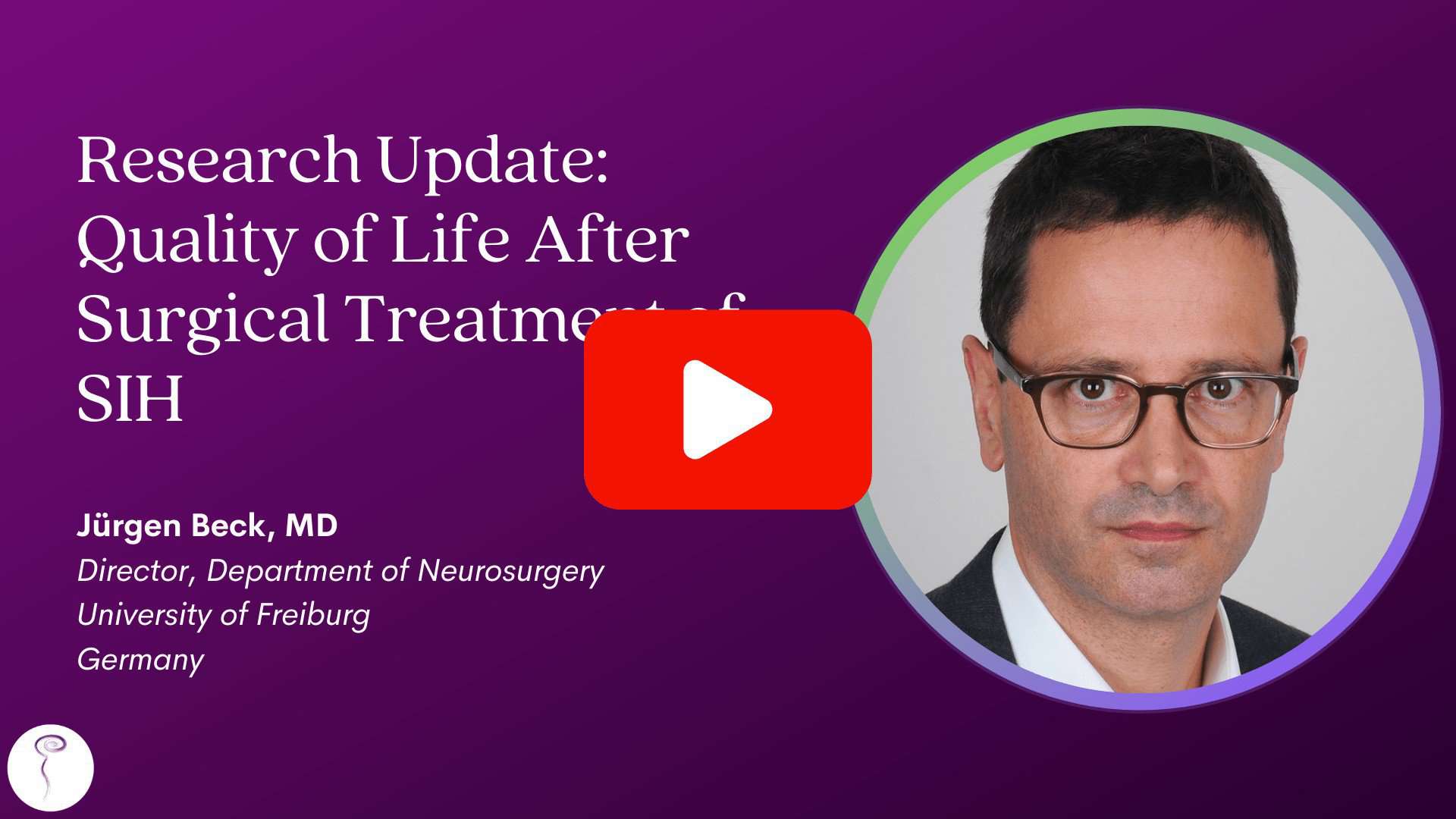Dr. Jürgen Beck at the 2023 Cedars-Sinai Intracranial Hypotension Conference
Dr. Jürgen Beck, Director, Department of Neurosurgery, University of Freiburg, Germany, presented research updates on his study of quality of life after surgical treatment of SIH at the 2023 Cedars-Sinai Intracranial Hypotension Conference on July 9, 2023. The conference was hosted by Cedars-Sinai with generous support from the Spinal CSF Leak Foundation in Kohala Coast, Hawaii.
Further info:
The research Dr. Beck presented here has now been published. You can read the full open access paper here: “Don’t Delay, but Don’t Despair: Symptom Duration, Comorbidity, and Outcome After Closure of Spinal Cerebrospinal Fluid Leaks,” Journal of Neurology. 2024 Feb 26. doi: 10.1007/s00415-024-12242-2
Transcript
[00:00:12] It’s about quality of life after surgical treatment of SIH and it’s about prospectively gathered data. So the objective was, do we really reach that outcome that we see in these pharmaceutical prospects of the healthy young people jogging around in Hawaii? How can we really assess it prospectively? And what we did, we did a prospective database, and we did the so-called PROMs, patient related outcome measures via the tablets in the hospital before surgery.
[00:00:46] And then we followed these patients just by email and sent them the prompts. And in the hospital, we trained them how to respond. And we reached the EuroQol-Research Foundation measure, which is called the EQ-5D-5L, as a PROM, which measures quality of life regardless of the disease, has several dimensions, has an index, and also a visual and a low scale.
[00:01:10] And we started this in 2019. It was prospectively gathered, and 80 patients responded up to now. Surgical cases. And so I think the severe impact Ian has shown, Deborah has shown; I think we can change that. So here are the results. And this is preoperative, three months; postoperatively, there’s the first significant change, and it gets slightly a little bit better after six months. So wait a little bit when you’re sure you’ve done the plumbing. And this is what I think is very interesting, and Ian Carroll helped us with analyzing these data, set them into relation of the general population in Germany. So it’s not just a headache. They are really severely impacted, the patients. And even, which is very funny, there was no, we didn’t talk before the session, what to present, [but] we came to the same results.
[00:02:06] So look at that. These are the, for the same test, for the same EQ-5D. In the same population in Germany, this is the mean of lung cancer patients and severely affected multiple sclerosis patients, and it exactly fits patients with SIH. So it’s not just a headache. It’s a syndrome or disease that affects our patients as severe as end-stage lung cancer and severe multiple sclerosis.
[00:02:33] And the nice thing is that we can significantly do better and they almost get to the level of, of the general population in Germany. So probably surgery, when we find the leak, it’s a different population, it’s a bit clear leak, and we can close it. The impact is way better than blood patching. And we also analyzed, I have to look that up, depression, anxiety, and stress levels, and they significantly improved after surgery as well. And what is also very interesting, since I mentioned low back pain earlier today, there seems to be a difference. In low back pain, we have these red flags and these yellow flags before doing surgery. And this was completely different than SIH.
[00:03:20] So the preoperative depressive symptoms did not affect the improvement in health or the quality of life after surgery. So even if they are severely affected in scales on depression, anxiety, stress, this does not affect the, the effect of surgery, though. They also improved very well. So higher levels of depressive symptoms did not predict worse outcome. So we can operate these patients. So I think these are our latest results from Freiburg. Thank you.

